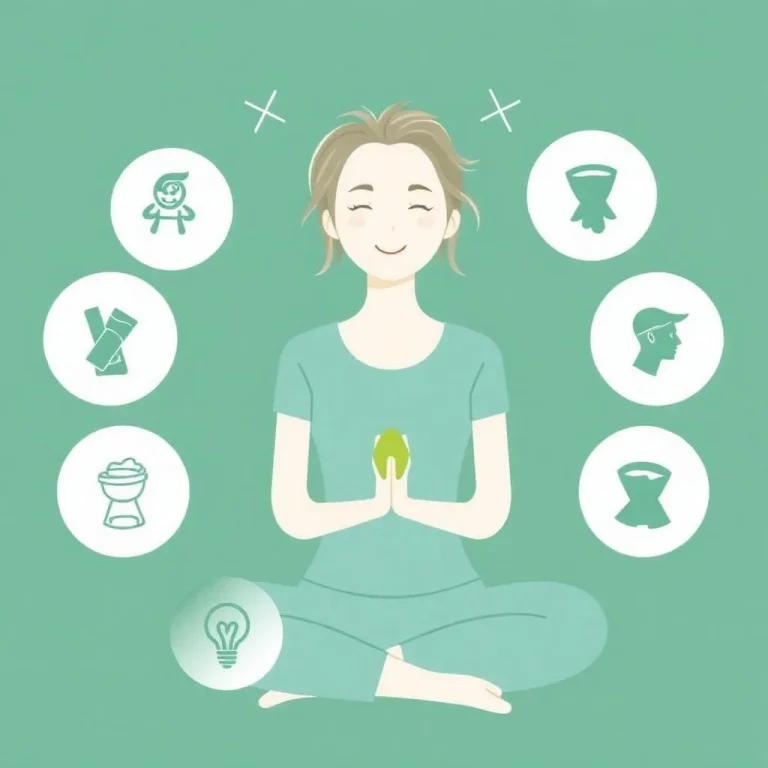Striking the right balance between life and work is one of the largest problems of the contemporary lifestyle. It is easy to get overwhelmed with emails pinging out of hours, meetings running into weekends and personal time disappearing rapidly. But the thing is, it is not about doing everything well. It is a matter of getting to know how to control your energy, make priorities and build healthy boundaries so that you can succeed both as a person and a professional.
We will discuss in this blog some of the practical work-life balance tips that are supported by psychology and productivity studies, easy habits that can be used to keep you grounded, focused, and satisfied in all aspects of your life.
1. Define What Balance Means to You
Balance is defined differently by different people. To others it can be additional time with family and to others it can be a passion project outside of work. The initial one is to make a decision on what matters to you.
Ask yourself:
- What areas of my life feel neglected?
- Which activities give me energy, and which drain it?
- What would a “balanced day” realistically look like?
Once you have clarity, it’s easier to make choices that align with your priorities rather than living on autopilot.
2. Set Clear Work Boundaries
Limits provide the safety of your mental health and individual time. In their absence, life in the workplace is very likely to seep into all parts of your life.
Here’s how to set better boundaries:
- Establish office hours: Communicate when you’re available (and when you’re not).
- Turn off notifications: Silence work apps after hours to reduce stress.
- Separate workspaces: Even if you work from home, create a distinct area for work to mentally “log off.”
Remember, productivity isn’t about working longer; it’s about working smarter.
3. Prioritize Rest and Sleep
Burnout tends to pass as motivation. You are considered to be productive when you go without taking rest, but are actually depleting your performance. Creativity, decision-making, and emotional control are impossible to do without quality sleep and downtime.
Try this:
- Stick to a consistent sleep schedule.
- Avoid screens 30 minutes before bed.
- Schedule short “mental breaks” during the day, even five minutes of deep breathing helps.
Your brain functions like a battery; it needs recharging to perform at its best.
4. Manage Time with Intention
Time management is not about being able to fit more things in your day, it is about utilizing time. The first step is to find the most productive time and then plan the important work.
Some helpful techniques include:
- Time blocking: Assign specific hours for deep work, meetings, and relaxation.
- The 2-minute rule: If a task takes less than 2 minutes, do it immediately.
- Batching similar tasks: Group emails, calls, or errands to minimize distractions.
Being intentional with your time helps you stay organized while leaving space for life beyond work.
5. Learn to Say “No” Without Guilt
Saying no is a challenge to many people and high achievers in particular. However, when one overcommits, it results in overworking and bitterness. A no does not make you unhelpful, it is rather a question of your own responsibility to your well-being.
Before agreeing to something, ask:
- Does this align with my current priorities?
- Do I realistically have the time and energy for it?
If the answer is no, politely decline or suggest an alternative timeline. Protecting your time is an act of self-respect.
6. Move Your Body Daily
Working out does not only make a person healthier, but also happier, more alert, and stronger. No gym membership or physical hard training is required, even 20-30 minutes of movement can do wonders.
Simple ways to stay active:
- Walk or cycle to work if possible.
- Take stretch breaks during long work sessions.
- Try yoga, dancing, or at-home workouts to stay consistent.
Exercise releases endorphins that naturally reduce stress and enhance concentration.
7. Nourish Your Mind and Body
Mental wellness is inseparable to food. Insufficient meals, caffeine use, or eating during-the-day may influence the energy level as well as the mood.
To maintain balance:
- Eat whole, nutrient-rich meals throughout the day.
- Stay hydrated, even mild dehydration impacts focus.
- Take time to eat mindfully instead of multitasking during meals.
Your body is your best investment; treat it like the foundation that supports your success.
8. Make Time for Relationships
One of the best stress buffers is human connection. Despite the hectic life we may have, family and friends give us a sense and an emotional support.
Try:
- Scheduling regular catch-ups (even short ones).
- Putting away your phone during meals or conversations.
- Expressing appreciation to people who matter.
Meaningful relationships remind you that life isn’t just about work, it’s about connection.
9. Practice Mindfulness and Reflection
Work-life balance is not very much a fixed position, but rather a process that you re-establish on a regular basis. Mindfulness assists you in being conscious of balances that are being lost.
Practices to try:
- Meditation or deep breathing for 5–10 minutes daily.
- Journaling about what went well (and what didn’t).
- Taking mini digital detoxes on weekends.
Mindfulness turns chaos into clarity, helping you realign with what truly matters.
10. Celebrate Small Wins
A large number of individuals will be waiting to achieve significant moments. Yet, since you celebrate small victories, completing an activity, saying no to something that exhausted you or just taking a break whenever necessary, the good habits are strengthened.
Record a win journal (or just start at the conclusion of your week). Recognition of improvement ensures that there is a high energy level of motivation and low burnout.
FAQs
1. What is the biggest cause of poor work-life balance?The most frequently used offender is absence of boundaries. It makes it hard to rest when work demands creep into personal lives, such as, when you get late-night emails or are multitasking all the time. Defining boundaries and knowing how to unplug is what is important to regain balance.
2. How can I balance work and life if I have a demanding job?Start small. Take regular breaks, assign tasks where feasible, and time block so that you give time to a personal activity. The 30 minutes of your time a day can go a long way in terms of stress reduction and enhanced concentration.
Final Thoughts
Leading a balanced life does not entail dividing the time evenly between work and personal life. It involves establishing balance, of the two living together without overpowering each other. These work-life balance tips will help you to increase your productivity, maintain your health, and enjoy every day of your life.
Balance is not about luxury, but a prerequisite to a successful and happy life in the long run. Begin with little, regular changes, and you will be able to balance your life, not with more time, but with meaningful time.



